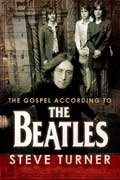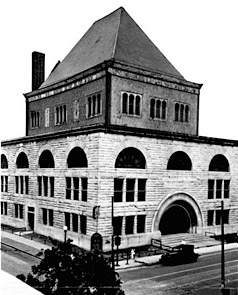
Some of you may have noticed my nifty new avatar in the "profile" section at left. "Gospel Gal" comes courtesy of Design-Her Gals, a company that allows users to create a gal to print on stationery, mugs, business or calling cards, aprons, et cetera.
It's a fun, creative concept, and I was so excited to discover this company--and not just 'cause it's made up of fellow gals! Through its Gal-to-Gal Foundation, Design-Her Gals donates 5 percent of every sale to organizations that help women with Stage 4 breast cancer.
So many families have been affected by breast cancer, including my own. My mom was diagnosed with breast cancer 9 years ago.
I will never forget the visceral terror and grief I felt when I called from college to plan a weekend trip home, only to find out that I needed to go home. To me, "Mom" and "home" are overlapping concepts. And our family's experience with breast cancer caused me to relate to the spiritual "Sometimes I Feel Like a Motherless Child" in a way I hadn't before. I knew that, without Mom, I would feel lost in the world. Homeless. De-centered, as if I'd lost something grounding that gave me a sense of reference.
In writing about this spiritual, Arthur C. Jones calls it "Arguably . . .the most important of the songs [Africans in America] passed on to us; it is probably not coincidental that it is one of a handful of African American folksongs that has survived sufficiently well to make itself known even to those with little or no familiarity with specific songs in the spirituals tradition."
He explains that although slave children often experienced this kind of pain, "the experience of the 'motherless child' . . .provided a frame of reference from which one might describe the severity of one's inner sufferings. Even one who had never been physically separated from mother could sing, during particularly trying times, 'Sometimes I feel like a motherless child,' assured that others in the community would understand intimately the precise level of pain associated with the difficult life experiences to which the singer referred. To announce, in song, that a life event made one feel 'like a motherless child' was to equate the pain associated with that event with the extreme torment occasioned by the 'daily, yea, hourly' occurrence of mother-child separation." (from Jones, Arthur C. Wade In the Water: The Wisdom of the Spirituals. Maryknoll: Orbis Books, 1993)
I'm deeply grateful for these songs of the ancestors that give me a language for understanding and expressing myself in times of joy and fear. I am separated from these slaves and former slaves by several generations and social strata, yet their wisdom and the faith they bequeathed me provide inspiration and sustenance.
I'm grateful that Mom is a breast cancer survivor of several years, and one with twice the energy of a woman 25 years her junior (specifically, that would be me).
I'm grateful, too, for opportunities to support important causes like breast cancer research. So I'm not going to keep this fabulous find to myself. I encourage you to click on the Gospel Gal in this post to make your own gal, or a gal for an important woman in your life. Tell them Gospel Gal sent you by to make a small push toward a big goal.




